
I’ve been writing these National Poetry Month emails/posts for the past 27 years and each year I think it’s going to be my last. Will anyone miss them if I stop? Does anyone really read them? But then I get such great messages in response to a post, and it keeps me going. Sometimes, I hear from someone I haven’t heard from in a long time, and it makes all the difference.
Today, I got a phone call from an old friend, Andrew Coulter, in Wyoming—we go back to our early days with The Nature Conservancy over 30 years ago. He called me after having read my Week Four post and explained he was going to send me an email to tell me how much he enjoyed getting the poems every year. But then he thought, “I’ll just pick up the phone and call him.”
We talked for about half an hour, got caught up on each other’s lives, and had a few laughs over some of our shared stories and history. I know we both hung up with smiles on our faces. It’s a good reminder to reach out to people we care about—we’re all so busy that it’s easy to lose touch, to let the years pass by without connecting with old friends.
Andrew’s call also reminded me that I usually post a Bonus Week poem, typically one of my own, at the end of every Poetry Month. “You can have a Bonus Poem in May,” Andrew said. So, why not? Here goes. (Thanks, Andrew.)
My poem “Doubting Finches” started, like many of my poems, from a simple observation made in 2009. A pair of house finches had set up a nest in the porch light of my old house in Philadelphia. I had the image of the nesting house finch couple and the intricacy of what I observed in the nest, but it didn’t amount to much more. I worked on the poem for quite a while before it came together—a few years, actually —and it finally went beyond the original inspiration.
The poem languished until I found there was more to the story. This was around two years later, at the tail end of a marriage, and I was about to embark on a new life where that house would no longer be mine. It was a time of turmoil, uncertainty, grief, and yet, also, a certain joy and anticipation. I wasn’t running away from something this time; I was running towards something.
The finished poem appeared in the UK online journal, Zoomorphic, in 2017, thanks to the wonderful Welsh poet, Susan Richardson. It also appears in my book, Wine-Dark Sea: New & Selected Poems & Translations, published by Shanti Arts in 2022.
Here is my poem, “Doubting Finches”:
The house finch nest in my porch light
has a curious architecture,
made entirely of found things:
dried seed heads from last year’s columbine,
dusky strands of my daughter’s hair,
small sticks, rose thorns, bits of string,
a gold thread from a cigarette pack wrapper.
Inside, wool-lined, cotton and fleece,
it holds three eggs, blue with tawny flecks.
The female finch sits on the nest
for an unusually long time; so long,
I fear she is mistaken or my messing
with the nest has disrupted gestation.
She picked her mate for the redness
of his head and chest, proxy for feeding prowess.
(I guess.)
In a few weeks all will be gone:
cherry blossoms drifting on air,
dogwoods blooming, oaks leafing out,
and the female finch finding another mate,
to start a second family this season.
Who was it that said, “Doubt is a privilege
of the faithful”? At least, I think someone
said it or should have. Then it was me,
me finding another mate, another home,
another reason. And I saw they swept out
the finch nest from that old porch light
as soon as I was gone.
–Scott Edward Anderson
National Poetry Month 2023, Week Four: Hannah Linden’s “My daughter says the ghosts were busy last night”
April 24, 2023
I first read Hannah Linden’s poetry in 2014, when we were both part of Jo Bell’s “52” group of writers–a number of us committing to write a poem each week for the entire year. We shared our work-in-progress in response to the prompts Jo supplied us with each week in a private Facebook group. Hannah’s writing stood out from the group and I was delighted when she announced last year that her first pamphlet, The Beautiful Open Sky, was coming out in the Fall. (A pamphlet is what the Brits call a small selection of poems; what we in the States might call a chapbook.)
Hannah is from a working class background, as she puts it, born in a “cotton mill town slum” in northern England. Poetry “didn’t seem like something one of us could write or think of as ‘ours,’” she said in an interview. Later, she “started writing poems on paper bags,” while working the register at a supermarket. Her co-workers “told people to come to their till instead because ‘can’t you see the poet is writing!’”
Some early encouragement from a teacher led her to enter some poems into a prize competition, which she won. She went to university–the first in her family to do so–but “felt in awe of all writers, out of my depth and that I was kidding myself to think I could be ‘one of them’.” She gave up writing poetry until she was in her early thirties, having moved from the North to Devon, where she took some poetry classes, but got discouraged by a teacher there, and didn’t read or write poetry for fourteen years while raising her children. A random meeting with Mike Sims of the Poetry Society led to her sharing poems with him and he encouraged her to write more. Then she joined Simon Williams’ Poem-a-Day forum and “52.”
In the interview, Hannah explained that in these poems she “was interested in the way ‘mother’ is both a role and a relationship.” The Beautiful Open Sky opens with a series of poems exploring the damage inflicted by a narcissistic mother. The voice in the poems shifts from the mother “saying what she thinks her children may be feeling and then she lets them start to speak for themselves whilst navigating the role of a single parent.” Finally, “as her children mature, the mother starts to relate to them more as independent people and, in the last poem, the adult daughter herself is speaking in the poem’s title as the mother comes to terms with letting go.”
As Hannah says in the interview, “the ‘beautiful open sky’ is a way of trying to see the world when a series of situations are weighing you down, oppressing or terrifying you.”
My daughter says the ghosts were busy last night
I’m getting old. I don’t hear the creaks
even on the nights she wakes me, unable
to settle into the cooling house. It could be
owls, I say. They call across the valley, hunt
and flirt with each other. Maybe, she says,
I hear more than one species these days.
Insects in the loft, perhaps. But I know she’s
thinking of the people who lived here before—
those we never met or the one we try to forget.
And of the loneliness of the nights
when she should be somewhere else.
It’s too safe for her here now, and today
she’s going out into the world again.
Soon I’ll be the one listening
to the roof expanding, contracting.
–Hannah Linden, from The Beautiful Open Sky
________________________
In case you missed it: I am excited to host a Writing Retreat there from 13-18 October 2023! Join me for 5 days of writing and immersion in the nature, food, and culture of the Azores. We’ll explore the island, focus with deep attention, expand our horizons, and tap into the stories within. Details and registration at https://www.scottedwardanderson.com/azores-retreat
“Poetry As Practice,” A Craft Essay
March 24, 2018
Cleaver Magazine published my craft essay, “Poetry As Practice,” earlier this year:
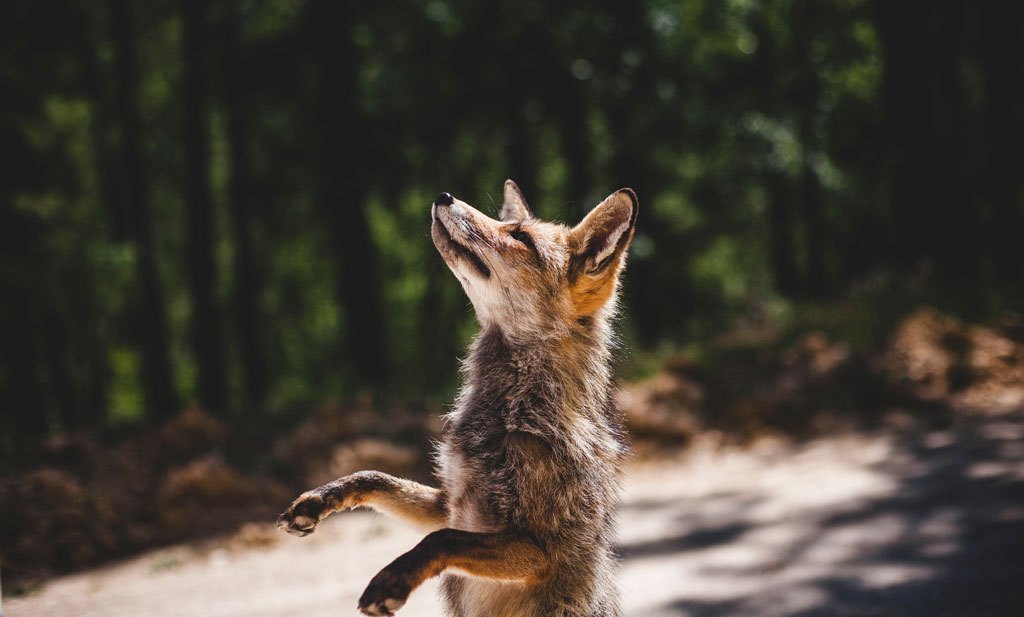 POETRY AS PRACTICE
POETRY AS PRACTICE
How Paying Attention Helps Us Improve Our Writing in the Age of Distraction
A Craft Essay
by Scott Edward Anderson
In this lyrical essay on the writing life, Scott Edward Anderson shows how poetry can be more than a formal approach to writing, more than an activity of technique, but a way to approach the world, which is good for both the poet and the poem.—Grant Clauser, Editor
Walking in Wissahickon Park after dropping my twins at their school in Philadelphia, I find muddy trails from the night’s heavy rains and temporary streams running along my path. The fuchsia flowers of a redbud tree shine brilliantly against the green of early leafing shrubs. A few chipmunks scurry among leaves on the forest floor. Birdsong is all around me: I note some of the birds—if they are bright enough and close enough to the trail or I recognize their song—the red flash of a cardinal lights on a branch nearby; a robin lands on the trail ahead, scraping his yellow beak against a rock.
Observation like this helps feed my database of images, fragments of music, and overheard speech, which prepares my poetry-brain for the work of choosing words, putting them in a certain order, and forming phrases into lines, stanzas, and eventually entire poems.
Remembering a line I’m working on, I worry it like a dog with a bone, gnawing on the words, their syntax, imagery, sound or feel in my mouth and mind. Playing with the line, I’ll follow it until it leads somewhere or dumps me in a ditch, when I’ll file it away for another day. I’m paying attention to where the poem wants to go. READ MORE
The Hamline University English Department recently conducted an in-depth Q&A with me about two of my poems, “Naming” and “Villanesca.”
Here is a link to their blog, Hamline Lit Link, where it was posted: Read more
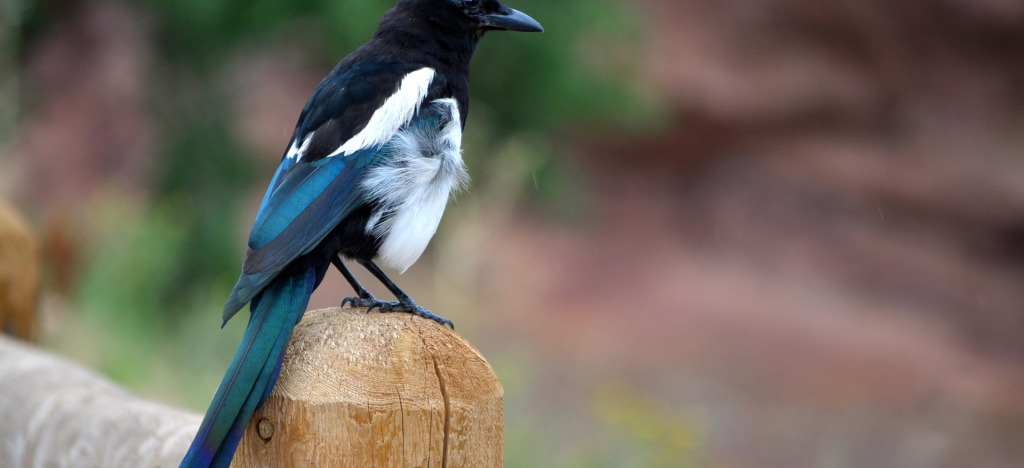
On Becoming the Subject: When Someone Writes About Your Work
January 10, 2016
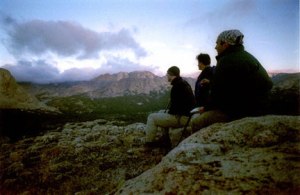
The poet (in bandanna) and pals, Wind River Range, Wyoming, Summer 2001. Photo by Joshua Sheldon.
“I never read my reviews,” the novelist Pat Conroy once said. “Not even the good ones. Barbra Streisand once told me, if just one person in the audience doesn’t applaud, it bothers her. I’m the same way. I’d be devastated to read that someone didn’t like my work.”
Back in 2001, a young woman named Veronika Linhartova Morley, then a student at De Anza College in Cupertino, California, contacted me by email. She wanted to write about my poetry for a class assignment on contemporary American poets.
She told me she’d read a poem of mine called “Carpentry” in the Boston Review and had found a number of other poems on line. I was flattered. Only, I never wrote a poem with that title and I’ve not yet published in the Boston Review. I looked up the poem, which was written by a Scott Anderson (see the link above) and thought, I could have written it, but I didn’t.
I hated to disappoint Ms. Morley, but broke the news to her by reply email. She was embarrassed; however, it turned out that all the other poems she’d found were indeed mine, and she still wanted to write about my work. We had a nice correspondence and she wrote a delightful little essay about my poetry and the influence of Elizabeth Bishop and Donald Hall on my work.
Her essay begins with a lengthy quote from a lecture I gave at the University of Alaska some years before:
“The contemporary poet of my choice, Scott Edward Anderson, once wrote in his essay ‘Making Poems Better: The Process of Revision’: ‘…writing poems is a lot like cooking. We bring everything we know about cooking and about what foods go well together to preparing a meal, just as we bring all we’ve learned or read or practiced to writing a poem. Sometimes, it’s just luck that we get the right combination of ingredients, but much of the time a fine meal is made from good ingredients being put together by a well-practiced chef.'”
She went on to make some good observations about my work and points about what I learned from both Bishop and Hall. She also identified a spiritual note in my work and my conflicting feelings about “the way we treat our world.”
In all, it’s a pretty accurate picture of my work, its process and two of my biggest influences. And the last line of her essay would make any poet proud. She writes that through her assignment and correspondence with me, she “not only learned about the process of writing poetry, but also learned to appreciate poetry even more.”
I don’t know how the essay was graded. I still have a copy. Veronika came to this country from Czechoslovakia in the late 1990s, as she told me, to get the kind of education unavailable in her own country. Some time ago, she gave me permission to reprint the essay, which you can read in full here.
My Poem “For T—“
August 26, 2015
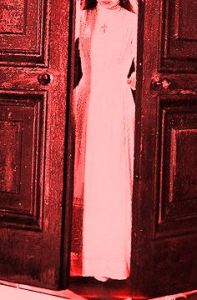 I’m not one for “What might have beens.”
I’m not one for “What might have beens.”
Frankly, it always seems a waste of time to think about life that way. Last year, however, while I was writing poems in response to weekly prompts as part of the “52” poetry group, I wrote a poem to the prompt, “So Near and Yet…”
If I recall correctly, the idea was to “think about something that nearly happened…” (I can’t verify because the prompts on the 52 site have been removed as its curator/founder Jo Bell compiles them into a book.)
Participating in 52, as I’ve written earlier, took me out of my comfort zone — both in method and subject matter. Several of the poems I wrote that year are more open and honest, at least in a self-referential way, than much of my earlier work. Almost I want to call them confessional.
In part this is because I rarely, if ever, write about myself in my poems. The prompts prompted that, but so did the honest and constructive feedback of the group. I felt safe to explore this other dimension and see where it took my work.
All of this leads me to my poem, “For T—,” which tells the story of an encounter that could have changed my life, but didn’t (or did it?). It’s not an incident about which I’m particularly proud.
And yet, as the material for a poem it worked in a strange way. At least my fellow 52ers felt so, as did the editors of the Yellow Chair Review, who published it in their latest issue.
Here is the poem:
For T—
I asked her to dance at a black tie dinner for Literacy.
She said she didn’t dance; I’d have to teach her.
Her friend, sitting next seat over, who later played
Hagrid in the Harry Potter films, cautioned,
“Be gentle with her now or you’ll be answering to me.”
She smiled when I bowed before taking her hand.
She was light on her feet and let me lead.
No one had moved her that way before,
so in control, she whispered in my ear.
And when the dance was over, I bowed again.
She thanked me, asked did I want to come
see her in “Hamlet” on Broadway? I did.
I brought flowers, met her backstage;
she came out with me; later, I put her in a cab.
“Do you fancy coming uptown?”
I demurred, made some excuse.
Perhaps another time, I suggested,
knowing there would be none.
(I’d no business being there in the first:
I was married; unhappily, but still.)
It couldn’t have ended well. No doubt,
we’d divorce after a few violent years.
She moving on to stage and screen;
me, the scapegoat in the press,
spilling popcorn on myself in the house seats.
–Scott Edward Anderson
To read the full Issue #3 of Yellow Chair Review, which has some fantastic poems by other poets from 52 and elsewhere, go here.
And you can read a selection of the poems from the 52 group in this Nine Arches Press book, here.
“52” or What It’s Like to Write a Poem Every Week for a Year
December 20, 2014
 I did it. I wrote a poem every week for an entire year.
I did it. I wrote a poem every week for an entire year.
(At least, at the time of this posting, I’m working on the penultimate poem of the year and, with one more week to go, I think it’s safe to say I’ll complete it.)
Why? Why the heck did I take on something like this? Why would anyone take on such a task?
Last year I spent the month of April writing a poem a day. That was 30 poems, most of which were quick reflections on what was happening in my life, the world around me or in my mind.
This was different. 52 poems. One per week. And at someone else’s bidding.
That someone else was poet Jo Bell. A year ago, Jo offered a challenge to some of her friends and followers: join a closed group on Facebook wherein poets would be given weekly prompts and asked to write and post their poem to the group. We were also asked to read, comment on, and critique each others work.
The idea was, as Jo herself put it, part of “a range of crowd-sourced projects to raise the standards of, and promote the pleasures of contemporary poetry…52 uses social media to connect writers and to raise their standard of writing through creative friction.”
Every week, Jo posted “a new exercise to help you write a new poem. You write it your way – to the very best of your ability. You improve, you expand, you develop.”
Along with over 540 other members, I took up that challenge. Each Thursday morning (UK time), we were given a new prompt and some examples of how other poets may have tackled the subject. (You can see all the prompts here: 52.)
The prompts were one word or a phrase or just an idea. Some of the challenges were excruciatingly hard, especially those that asked the poet to get out of his or her own skin, style or comfort zone. Others fit nicely into a familiar pattern, yet encouraged the poets take their own style to a new level.
The first observation I have about this group is what a wonderful collection of people Jo attracted. As the year went on, many of us grew close and supportive of each other’s work and struggles. Some of us have became friends outside the group.
The second is how gratifying to get almost instant feedback on a new poem or idea of a poem. 52 was like a private workshop that helped flag lazy writing, praise winning phrases, and challenge each other to improve our work.
The third observation is how HARD this challenge was to accomplish. Some weeks came easier than others — being on vacation, honeymoon, or holiday certainly helped — other times, when the week was particularly busy at work or something else was going on (my wedding!), it was more difficult.
But I did it. I wrote a poem every week. How many of the poems will actually survive is another issue. At least one, “Weather,” from the sixth week of the year, has been accepted for publication. Others I’ve read at readings to some applause.
One poem, “Blended Family,” written in response to the week eleven prompt, “Songs of Praise,” was read at our wedding by Samantha’s eldest daughter. (You can read it here.)
Writing a poem each week was certainly worth doing, but I don’t think I’ll try it again. I don’t write well this way, with the pressure of a looming deadline (poems had to be posted before the following week’s prompt), I prefer to let the poem come to me and steep, and work on it as I see fit.
And yet, this challenge has had a positive impact on my work. It has freed my work somewhat — many of the challenges were not the subject of my past poetry; some forced me to write about things I never thought to tackle in poetry.
I’m grateful to Jo for the challenge and to those who read my work and shared thoughtful comments on my posts — or called me out when I wasn’t hitting the mark.
There’s a handful of members with whom I’ll stay in touch and perhaps even continue to share poems. Most of them I would not have met were it not for Jo’s group and the platform of Facebook.
As for the poems, I plan to spend the next year going over them with a sharp pencil and a sharper eye, finding the gems, excising the fakes, and possibly building this group of 52 poems into something worthy of the group and this very special experience.
Final 5 Questions for Poets
June 13, 2014
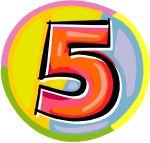 Jonathan Hobratsch, writing in the Huffington Post, celebrated National Poetry Month by posing “5 Questions for Poets” by readers of poetry.
Jonathan Hobratsch, writing in the Huffington Post, celebrated National Poetry Month by posing “5 Questions for Poets” by readers of poetry.
I’ve tried to answer each of his questions (this is the 5th and final). You can find my answers to other sets of questions, here, here, here, and here. Here’s a link to Jonathan’s original Part 5 post and the other poets’ answers: 5 Questions for Poets.
And here are my answers:
1. How hard should you work at a poem?
As hard as it takes to get the poem where it wants to go and get the author out of the way.
2. According to The Atlantic, over 50 percent of people think computers will be able to write great works of literature in 50 years. Do you hold with the majority prognostication?
Great works of literature? I doubt it. But then, when artificial intelligence takes over, great will be defined by a different standard.
3. What would poets like for undergrads to know about poetry?
Poems are pleasure, as Donald Hall wrote in “The Unsayable Said: an essay,” “Poems are pleasure first, bodily pleasure, a deliciousness of the senses. Mostly, poems end by saying something (even the unsayable) but they start as the body’s joy, like making love.” I think if students had this in mind — maybe a few teachers too — poetry would be better taught and more widely read.
4. What interests outside of literature work well with writing poetry?
Many and various interests outside literature work well with poetry, sports, romance, hiking, travel, even work. I found my work with The Nature Conservancy exposed me to so many of nature’s wonders and details that it proved a storehouse of inspiration for my poetry. But even now, when I work for a Big Four firm’s cleantech practice, I’m in one of my most productive periods. It’s all about paying attention.
5. If you were poet during a different era, when/where would you want to exist?
In a workshop long ago Gary Snyder accused me of having a 17th or 18th century sensibility as a poet. So, maybe that’s where I’d find a home. But I’m very happy where I am right here and now.
Yet More 5 Questions for Poets
June 4, 2014
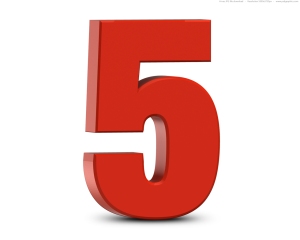 Jonathan Hobratsch, writing in the Huffington Post, celebrated National Poetry Month by posing “5 Questions for Poets” by readers of poetry.
Jonathan Hobratsch, writing in the Huffington Post, celebrated National Poetry Month by posing “5 Questions for Poets” by readers of poetry.
I’m going to continue to answer these questions (this is Part 3 for me, but out of sequence with the original; you can find my answers to other sets of questions, here, here, and here). Here’s a link to Jonathan’s original Part 4 post and the other poets’ answers: 5 Questions for Poets.
And here are my answers:
1. April 23 was Shakespeare’s 450th anniversary. If you went back in time and could ask him one question, what would that question be?
How the hell did you do it?
2. What bothers you most in your literature community?
That I don’t get to spend more time in it – whether it’s my virtual community “52” or the one where I live in Brooklyn. There are some wonderful poets – wonderful people! – in those communities and I really wish I had more time to hang out with them. In the larger poetry community: careerism, cronysism, and churlishness.
3. Which poets, alive or dead, are overrated/underrated?
I’m sure I’ll offend with this comment but I find Charles Bukowski completely overrated and over-read. And his influence is dreadfully felt. Among contemporaries, I also can’t see what all the fuss is about Dorothea Lasky, there doesn’t seem to be much there there. (I can see the email daggers massing in my in-box or, for that one.)
There are way too many underrated contemporary poets to mention them all, but among the dead Lorine Niedecker, Kenneth Patchen, and Walter Pavlich have always seemed unfairly neglected in my book.
4. Are prizes like Pulitzer, NBA, NBCC are good for poetry. Is there discrimination against women poets, non-white poets, gay poets?
Prizes are for poets, not poetry. It seems like a popularity contest more than anything. I’m sure there is discrimination; you find that wherever there are human beings, cliques, factions, and dominant cultural hierarchies. Others have VIDA stats and ratios to prove it.
5. Is poetry useful?
Poetry is neither as useful as a tool nor as useless as a whim. Of course, I couldn’t live without it.
Still More 5 Questions for Poets
May 15, 2014
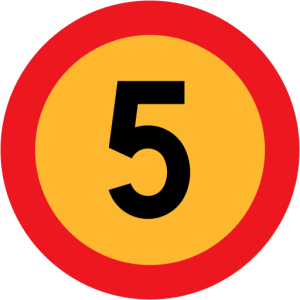 Jonathan Hobratsch, writing in the Huffington Post, celebrated National Poetry Month by posing “5 Questions for Poets” by readers of poetry.
Jonathan Hobratsch, writing in the Huffington Post, celebrated National Poetry Month by posing “5 Questions for Poets” by readers of poetry.
I’m going to continue to answer these questions (this is Part 3 for me, but out of sequence with the original; you can find my answers to other sets of questions, here and here). Here’s a link to Jonathan’s original Part 2 post and the other poets’ answers: 5 Questions for Poets.
And here are my answers:
1. What qualities or subject matter do you feel is missing in contemporary poetry?
In my humble opinion, there are four things lacking in contemporary (American) poetry: 1.) a sense of the history of poetry before Bukowski and the Beats; 2.) a belief that there are ANY universal truths; 3.) faith in the power of love; and 4.) thinking, deep and critical. Individual poets fill this void, to be sure, but generally speaking, the poetry that gets attention these days seems lacking in many ways.
2. What is your writing and editing process like? How long does it generally take you to finish a poem?
If asked that a year or two ago I would have said, I work late at night, usually while walking, and work on poems a lot in my head before I get anything on paper. When I do get a poem on paper it is long-hand first, then I type it up. Then I revise, revise, revise, until the poem goes where it wants to go.
Lately, however, I’ve completely changed my way of working. In part, because of two experiences: last year I wrote a poem-a -day for National Poetry Month and posted it on my blog: raw, unedited, and “unfinished.” (I’ve since gone over them a bit, but the originals are still up for all to see.)
Then, this year, I joined a poetry group started by Jo Bell in the UK. The group is called “52” and meets virtually, in a closed group on Facebook. It’s called 52 because the challenge is to write a poem a week in response to a prompt posted each Thursday. It’s been remarkably fruitful. Will anything survive the experiment? I already have 2-3 poems I feel are worth continuing to work on, and a few others that served their purpose as occasional verse.
The result is I’m writing quickly, much more quickly than my previous, more methodical efforts, and usually on my iPhone. Is it a better way of working? Only time will tell.
3. What Poets Do You Read?
I read any and all poetry I can get my hands on. I try to buy a handful of poetry books each year – I need to contribute to the poetry economy and, if I’m going to ask others to buy my books, I should support other poets. Most recently, I’ve bought and read collections by Jo Bell, Kathleen Jamie, John Glenday, Ada Limon, Ethan Paquin, Don Paterson, Jo Shapcott, and Robert Wrigley. And I’ve been reading a lot of Tamil poetry, in translation of course, both modern and classical.
I’ve also read Alfred Corn’s last collection, Tables, and thoroughly enjoyed reconnecting with his work this year. I went back to Seamus Heaney’s poetry when he died last summer; such remarkable language and imagery. Jack Gilbert’s Collected Poems, which my mother-in-law gave me for the holidays last year, is still on my bedside table and I dip into it as often as possible. Frederick Seidel captured my attention two years ago. It took me an entire year to get through his Selected Poems, 1959-2009, but it was worth it. He’s a trip.
And, of course, Elizabeth Bishop remains a constant for me. I turn most often to her work.
4. What is an up-and-coming poet?
An up-and-coming poet, I guess by that you mean an emerging poet? It’s funny, when I won the Nebraska Review and Aldrich Emerging Poets awards back in the late 90s, I thought, “Okay, so I’m emerging, now what?” It took 15 more years for my book, FALLOW FIELD, to come out. Am I still emerging? Have I emerged? Am I up-and-coming? I’m glad to be up at all, frankly; as they say, the alternative is much worse.
5. Who is the best living poet?
Up until he died at the end of last summer, I would have said Seamus Heaney.
If by “best” you mean “greatest living,” I’d have to say Derek Walcott, at least in terms of the scope and breadth of his work. There is a real sense of history in his poetry. It is rich and full of traditions and truths that are both global and place-based. His thinking is deep and critical, and his poetry is full of faith in love. Take his “Love After Love”:
The time will come
when, with elation
you will greet yourself arriving
at your own door, in your own mirror
and each will smile at the other’s welcome,
and say, sit here. Eat.
You will love again the stranger who was your self.
Give wine. Give bread. Give back your heart
to itself, to the stranger who has loved you
all your life, whom you ignored
for another, who knows you by heart.
Take down the love letters from the bookshelf,
the photographs, the desperate notes,
peel your own image from the mirror.
Sit. Feast on your life.
–Derek Walcott
